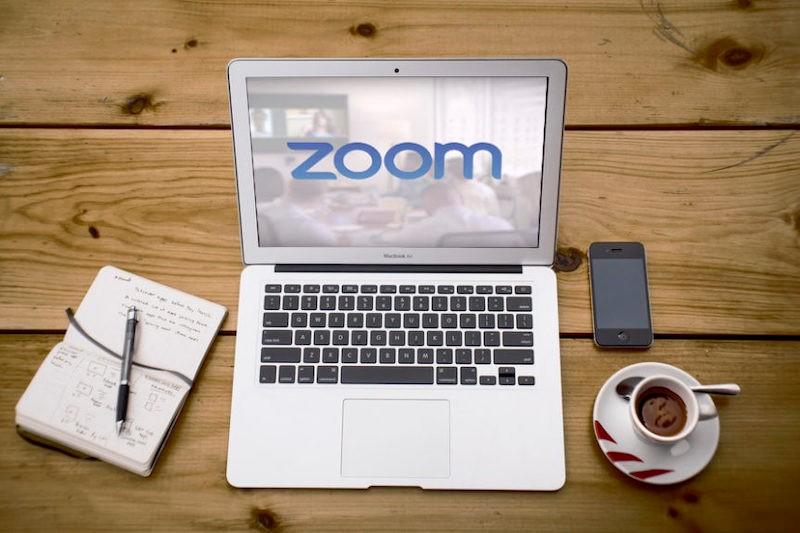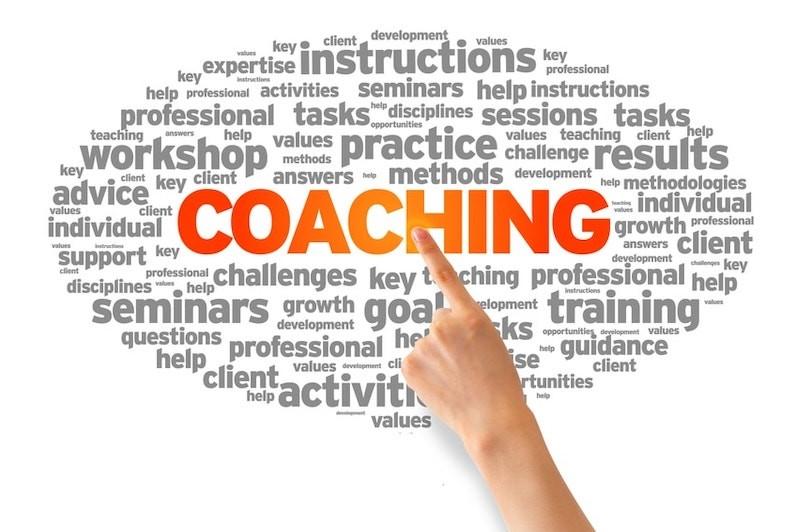Human Factors in Diving - Level 1
Developing Knowledge. Learning Skills. Taking Action.
Human factors is about making it easier to do the right thing, and harder to do the wrong thing. That includes decision making, teamwork, communications, situation awareness and leadership in diving.
These Non-Technical Skills (also known as Crew Resource Management) are a sub-set of Human Factors and primarily deal with creating a shared 'mental model' across the dive team and those who the team is operating with e.g. boat crew, instructors and dive centre.
Accidents and incidents happen because of surprises. No surprises, no accidents. This course is about taking action to apply human factors and non-technical skills to reduce the likelihood of surprises and increase your enjoyment and adventure.

Here's the reality...
Every one of us makes mistakes every day, even the experts.
For that very reason, the aviation, nuclear power and medical professions have invested huge resources in helping their personnel to get better at not making those mistakes, and if they do, how to capture them before it gets really bad. The Human Diver team have taken this research and distilled it into a programme for divers.
Improving safety. Increasing enjoyment. Creating more effective instructors.
"Dive safety comes down to the choices you and your team make every time you plan to execute a dive. The program acts like powerful computing software, synthesizing 'everything but the gear' into the most relevant components, so you can spend your time reflecting on your own, or your teams', dive practice. The trainer listened and considered ideas that come up in class and modelled the behaviors you need to build a better team. You could see the outcomes of their teaching and modelling in the group. That is the best representation of what you can do with what you learn in the program." Megan Bradley
What you'll get from the course...

Online
Three hours of online learning using bite-sized chunks of theory (5-10 mins clips) to give you a baseline of knowledge or reinforce previously learned concepts/tools. Accessible via personal computer, tablet or mobile phone.
Each module has a small assessment to consolidate and confirm the learning before moving onto the next topic.
All of the modules have direct relevance to the virtual classroom work so you'll need to pay attention. As the classroom work is collaborative in nature, we want you all to be at the same level when you start. Don't let your study team down, apply yourself here.
The learning objectives for the online materials are based around Bloom's taxonomy of knowledge.

Virtual Classroom
Using state-of-the-art software (not just Zoom!) we have developed a virtual classroom environment which allows collaboration, skills development and real teamwork to solve issues and problems relating to human factors and non-technical skills.
Using different learning techniques, we create the environment where you have to analyse issues and create stories and explanations, deepening the learning which is happening during the class.
The primary time scheduled is 10:00-15:00 UK (BST) each day but these can shift based on the location of attendees.
The learning objectives for the virtual classroom are based around Bloom's taxonomy of comprehension, application and analysis.

Post-class Coaching Call
We recognise that there is a massive amount of information that will be delivered in the online and virtual classroom environments and due to the way our brains process information, questions will pop up after the training sessions. To help you unpack those and explore potential solutions, we will arrange for a one-hour coaching call to take place approximately two weeks after the class.
There is a 'rule' in education called the 10:20:70 rule. 10% of learning happens in the class, 20% happens with a coach or mentor in the 'operating environment' and 70% happens 'on the job'. Use this coaching call to help with your real transformation.
Added Bonus
As a student of this class, you will be given access to additional materials like presentations and briefing notes only available to those who complete a face-to-face class with The Human Diver. The goal being to grown your knowledge, develop your skills and help you take action.
"The course was an absolutely pleasure, full of rich, effective and useful contents, useful both for self enhancement and team reinforcement, and in general to improve safety in diving life. I will absolutely recommend it. I think most of the instructors (especially those who teach currently) should follow your path." - AB
What is inside the course?
Human Factors is not just 'factors of the human' but much wider than that. Simply put, how to make it easier to do the right thing and harder to do the wrong thing.
Non-Technical Skills is about creating a shared mental model within your team, dive class or dive operation. Not as simple as you think and that is what this class is about.
'Human Error' is a great bucket to drop unintentional activities into, but doesn't help learning. This module will show how and why.
Decision-making is far more complicated than the 'choices' we make. Learn how we REALLY make decisions and the factors that go into it so that you can avoid, trap and mitigate errors before they are made.
Most errors are down to reduced situation awareness and a sound decision made on that rather than good information and bad decision. This course will help improve your situation awareness.
“The single biggest problem in communication is the illusion that it has taken place.” How true this quote is. Accurate communication is essential if we are to have a safe and enjoyable dive.
Understand what makes effective communication and learn tools to increase the likelihood that the other party has understood the message and the intent.
Teams don't just happen, it takes applied knowledge to form them quickly. Teams are not just a group of who go diving together, or who are learning together. Real teams are those who have trust in one another and have psychological safety.
Learn how to create teams quickly by understanding the building blocks of team building. That includes the roles of leaders (instructors) and followers (students) in the process.
Without a Just Culture in place, learning is limited; and the same accidents/incidents will continue to occur with the individual divers often being blamed for the failure, rather than systemic factors.
A Just Culture facilitates reporting and learning from adverse events leading to improved safety; whereas blame is the enemy of safety with incomplete stories being told, leading to poor incident analyses and sub-optimal behaviours when it comes to hiding near-misses.
Learn more about how a Just Culture is created and what you can do to help develop one.
Day one in the virtual classroom contains a brief recap of some of the theory and you will present key points back to the rest of the class. In addition, two case studies will be examined in detail, in an interactive manner and making use of novel technology to make sure the learning is both developed and retained.
Day two is similar to the first with some more theory development but only one case study to examine, review and discuss. The second major activity during this day is, in teams, to review the practical application of this course to your own diving so that the learning and action associated with it is yours to own and take away.
All materials developed using the novel software will allow PDFs to be created and therefore you can take the learning with you afterwards.
The goal of the one hour coaching call is to review thoughts and/or issues which might have come up since the two-day class finished. Often we find that students learn so much their heads are buzzing and on reflection, they'd like to talk about specific issues of implementation. This call is that opportunity.
"I really want to thank you for sharing your knowledge with such passion. Our scheduled lessons were the greatest moment of the week during the COVID period. I tried not to lose even one lesson, I connected even from the COVID unit. It has been my oxygen, thank you. It has been social and high-quality time spent to became more confident in my greater passion.
Really, thanks a lot lot lot...."
Gareth Lock, MSc, MCIEHF
Gareth founded The Human Diver in January 2016 when he recognised that there was a gap in knowledge within the diving community when it came to human factors, non-technical skills and the need for a Just Culture.
Prior to this, he spent 25 years in the Royal Air Force as a flight instructor, navigator on C-130 Hercules, systems engineer and a requirements manager. He left the RAF in Feb 2015 and immediately started work in high-risk industries teaching HF and Crew Resource Management (CRM).
Since 2016 he has taught more than 350 divers face-to-face, presented at nearly 20 conferences around the world on the topic of HF in diving, published 'Under Pressure: Diving Deeper with Human Factors' which has sold nearly 3000 copies since March 2019.
He is GUE Tech 2 certified and TDI JJ-CCR Mod 1. He's looking forward to getting cave certified too! He loves his underwater photography and has been published in numerous magazines.
He is based in the UK but has taught from Seattle to New Zealand and 10s of locations between!

The rest of the Human Diver team
Guy Shockey is an ex military officer and former professional guide with a graduate degree in Political science. He is an entrepreneur with several startups to his resume including building up a successful manufacturing business with wholesale and retail components. He is also a nationally accredited Skydiving coach and instructor.
He first learned to dive in 1982 in the cold mountain lakes of Alberta, Canada and has been involved with Global Underwater Explorers for the past 12 years. He is currently a full time Instructor Evaluator for GUE, and spends a good deal of his time travelling the globe and teaching both OC and CCR for GUE.
Guy loves to share his passion for exploration whether it be in the mountains or under the sea. Guy was one of the first instructors to require his technical diving students to take the Human Factors online mini class as preparation for technical and instructor dive training.
Helene Pellerin is from Quebec City, Canada. She is an Associate Professor of Anesthesiology at Universite Laval in Quebec City, and she is an instructor at the simulation centre of the Faculty of medicine of Universite Laval, where she teaches Crisis Resources Management and Teamwork. The Human Diver program was a fantastic opportunity and a logical way forward to move her interest in human factors from her professional life to diving.
Helene is a GUE TEC 1 diver, a PADI Divemaster and an Emergengy First Response (EFR) instructor with more than 300 dives in the past 5 years. She is mostly a cold-water diver although she enjoys warm water very much as well. She enjoys ocean dives and wreck dives. The application of non-technical skills in diving really captured her interest. Understanding human performance and how it can be improved to decrease error and increase safety is one of the most interesting fields of knowledge. Her goal is to promote the development of a Just Culture by disseminating knowledge and teaching non-technical skills to divers of all levels.
Bart den Ouden became a diving professional in 2001 and has been teaching ever since. In 2006 he became an EFR Instructor Trainer, a TDI Instructor Trainer in 2007 and a PADI Course Director in March 2008. He is also allowed to offer Workplace Accredited Training, is a Diver Medical Technician and has earned degrees in teaching and training. Bart also works as a safety diver for the film industry and has worked on projects like “The Hitman’s Bodyguard”.
Bart is an Open and Closed Circuit Advanced Trimix Instructor Trainer with around 3,000 dives over 20 years of diving.
He is a private security professional of 20 years, focusing on providing safety and security for many clients, ranging from retailers to big public events. Since 2009 he is also one of the examiners for the security industry’s exam board in The Netherlands.
Bart strongly believes that training is paid for but certification is earned and has always felt “something” was missing in most of the training programmes. That is why he has been a keen supporter of the Human Factors in Diving course and why he was happy to have been selected to become a Human Diver Instructor.
Bart is based in The Netherlands and very happy to travel wherever you may need him to go.
Jenny is a full-time technical diving instructor. Prior to diving, she worked in outdoor education for 10 years teaching rock climbing, white water kayaking and canoeing, sailing, skiing, caving and cycling, amongst other sports.
Her interest in team development started with outdoor education, using it as a tool to help people learn more about communication, planning and teamwork.
Since 2009 she has lived in Dahab, Egypt teaching SCUBA diving. She is now a technical instructor trainer for TDI, advanced trimix instructor, advanced mixed gas CCR diver and helitrox CCR instructor.
Jenny has supported a number of deep dives as part of H2O divers dive team and works as a safety diver in the stunt industry.
Darryl served in the British Army and has been an expat for the last 30 years in a variety of senior management roles in the software and management consultancy sectors. He dives both open circuit and CCR and is passionate about wreck exploration.
He is a technical instructor for Unified team Diving (UTD) as well as an instructor trainer for RAID and owns several dive centres in the UAE and Oman together with his wife, Marine who is also an Instructor Trainer for UTD and an Examiner for RAID.
Darryl lives in Dubai and has 5 children, which is probably where his deep interest in high performance teams came from…

